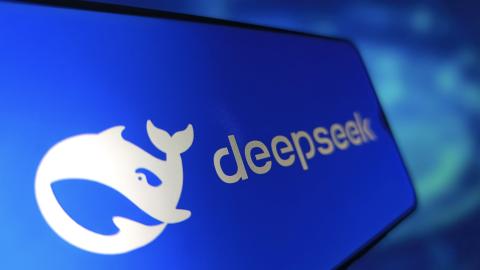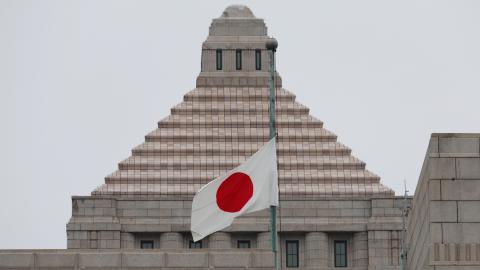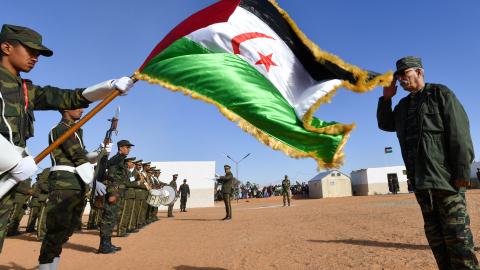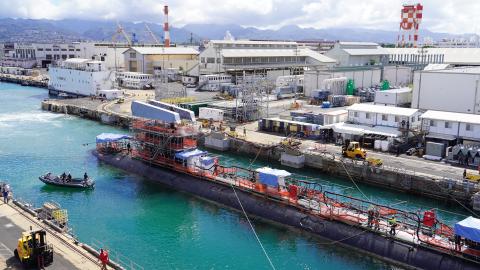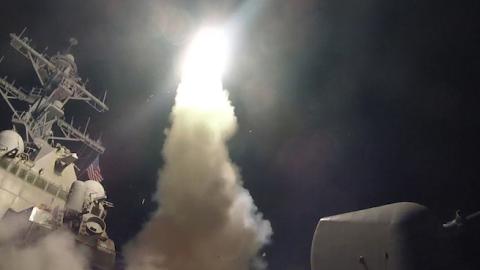President Trump faced his first serious foreign-policy test this week. To the surprise and perhaps frustration of his critics, he passed with flying colors.
In the first place, the president read the situation correctly. Syrian President Bashar Assad’s horrific and illegal use of chemical weapons against civilians was not merely an affront to international norms. It was a probe by Mr. Assad and his patrons to test the mettle of the new White House.
This must have looked like a good week to challenge Washington. The Trump administration is beset by critics. Most senior national-security posts remain unfilled. The White House is torn by infighting. The Republican Party is divided by the bitter primary campaign and its recent health-care fiasco.
President Trump concluded, correctly, that failing to respond effectively to Mr. Assad’s challenge would invite more probes and more tests. He moved quickly and decisively against the provocation, demonstrating that the days of strategic dithering are gone.
Second, Mr. Trump chose the right response: a limited missile strike against the Syrian air base that, according to American intelligence, had launched the vicious gas attack. This resonated well nearly everywhere. At home, it won approval from Jacksonians and others who want a strong president. The strikes vindicated America’s prestige and dealt a clear setback to those who seek to humiliate or marginalize the U.S. But no ground troops were involved and Mr. Trump made no move toward long-term counterinsurgency or nation-building, the type of campaign that many Americans, his base in particular, have learned to view skeptically.
Internationally, the strike was also popular. Australian Prime Minister Malcolm Turnbull, putting awkward phone calls behind him, spoke up forthrightly in Mr. Trump’s support. So did Canada’s Justin Trudeau, not usually considered a member of the Trump Fan Club, and Germany’s foreign minister, a Social Democrat whose party has been among the most critical of past American military action.
The strike reassured nervous allies, hungry for leadership but concerned about Mr. Trump’s temperament, that he is capable of a measured response intended to support a vital principle of international law. Friends of the U.S. will sweat less, and opponents will sweat more. That is a good thing.
Third, Mr. Trump handled the process well. Congress was briefed but not asked for approval, a decision inside the long-established norms that govern military action by American commanders in chief. Engaging in a war to overthrow Mr. Assad would be another matter, but so far Mr. Trump has stayed well within the mainstream of American presidents dating back to the 18th century.
The Trump administration notified Russia before the U.S. bombed the Syrian airfield. This is a process of its own. If this were the start of a long war, we wouldn’t give our adversaries advance warning about the opening salvo. However, by telling Moscow we were about to strike, the administration was signaling that the engagement would be limited, and the Russians could therefore temper their response. By using cruise missiles, the administration also guaranteed that the action would be impossible to prevent.
Finally, Mr. Trump gets extra points for deftness. He struck at a Russian proxy while holding a summit with Chinese President Xi Jinping in which North Korea was a major topic. That’s a polite way to make the point that the U.S. and its allies have kicked the North Korean can down the road for too long. To avoid the kind of crisis that would benefit no one—and China least of all—Beijing ought to bring a new sense of focus and urgency to its dealings with Pyongyang. Mr. Trump’s decision to use missiles against a pariah state in the Middle East may give diplomacy a better chance to avoid similar steps in much more dangerous Northeast Asia.
President Trump can expect to reap some political benefits from his Syria strike. It should bring many (though never all) Republicans into closer alignment with the White House. It also undermines the idea that Mr. Trump is some kind of Putin puppet. The Jacksonian voters whose enthusiasm put Mr. Trump in the White House will consider their faith in his leadership qualities reinforced, happy that the U.S. is no longer led by a ditherer-in-chief.
Mr. Obama’s acolytes now will have to spend less time attacking Mr. Trump and more time trying to defend their own tattered legacy in Syria. Remember when they told us that Mr. Obama’s “brilliant” deal with Messrs. Putin and Assad had eradicated chemical weapons there? Some curious journalists may even start asking whether officials in the Obama administration knew that Mr. Assad retained dangerous stockpiles of sarin gas but kept quiet to make their Syria diplomacy look less abject.
But while Mr. Trump and his associates bask in their success, they should remember their foreign policy travails are only beginning. Russia, Iran and China all seek to roll back American power. The European Union—whatever its shortcomings, a bulwark of American power—faces its greatest threat in half a century from the combination of flawed policies at home and ruthless challengers abroad. The bloodbath in the Middle East is by no means finished. Turkey, once a pillar of regional stability and American security, threatens to become unmoored from the West and the NATO alliance that has kept it safe since the Truman administration. As anarchy and sectarian conflict rage across the Middle East, the passions of religious fanaticism and terrorism burn brighter and hotter than ever.
Mr. Trump has passed his first test, but more difficult ones are yet to come. If he is to succeed—and every American and friend of world peace must pray that he does—he will need a team in the White House that commands his full confidence. The extraordinary talents now in charge at the State Department, the Defense Department and the National Security Council need to staff up and surround themselves with the best the country can offer. There is no job in the world more difficult than the U.S. presidency. President Trump will need all the help he can get.
